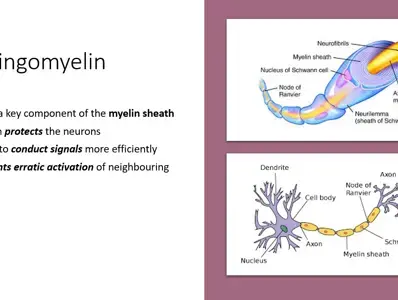The fetal nervous system is one of the first systems to be developed and the last to be completed after birth. The process generates the most complex structures within the embryo. At birth, the brain is at 25% of adult size but reaches 75% of adult size by the end of the first year. Most brain processes during the period are primarily focused on connecting the brain by myelination and formation of new brain connections
The developing brain is peculiarly vulnerable to modification by environmental factors. The quality of nutrition in early life significantly impacts the quality of brain development. Nutrition can directly influence and support the Central nervous system (CNS) through changes in neuroanatomy and neurotransmission.
Sphingomyelin plays an important role in cognitive development via its structural and functional involvement in CNS myelination. Human milk is the preferred source of nutrition for infants and naturally contains sphingomyelin
Early life nutrition is an important and modifiable factor that can shape myelination and subsequently cognitive outcomes

